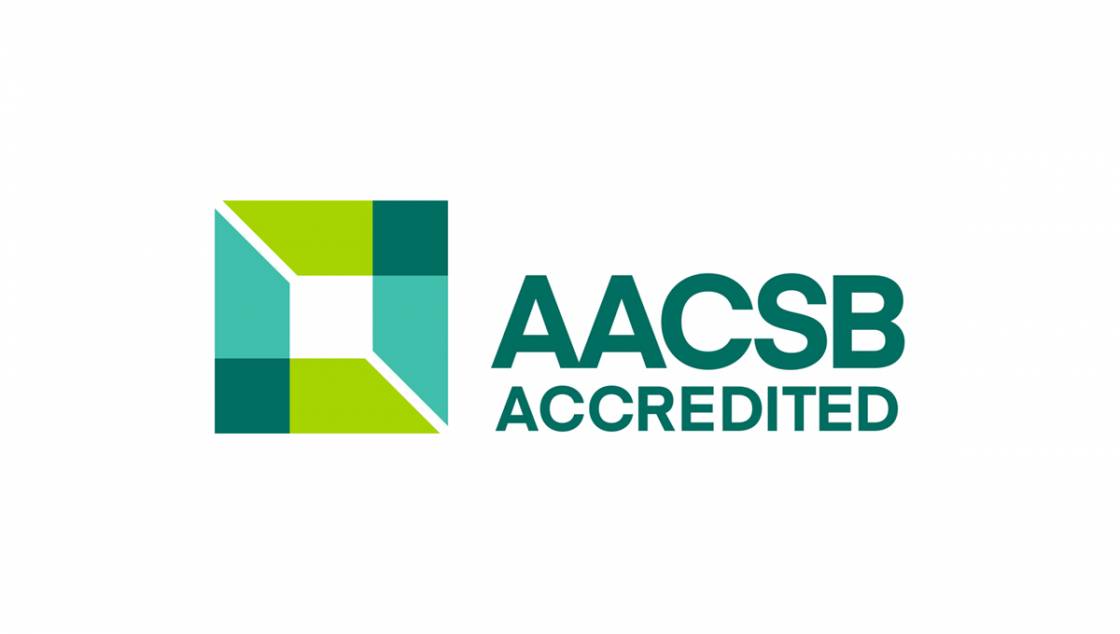Real Estate MSc
Why choose this course?
This course is ideal if you want to work in the real estate sector, across a range of disciplines, in the UK or overseas.
You will be able to focus on areas of valuation, investment, sustainability in real estate, regenerative placemaking, planning and development and be encouraged to develop research as well as technical, professional and practical skills.
You may pursue your individual interests through the design and completion of an independent research project.
| Mode | Duration | Attendance | Start date |
|---|---|---|---|
| Full time | 1 year | Short intensive blocks | September 2024 |
| Full time | 1 year | Short intensive blocks |
January 2025 September 2025 |
| Full time | 2 years including professional placement | Short intensive blocks | September 2024 |
| Full time | 2 years including professional placement | Short intensive blocks |
January 2025 September 2025 |
| Part time | 2 years | Short intensive blocks | September 2024 |
| Part time | 2 years | Short intensive blocks |
January 2025 September 2025 |
| Main Location | Kingston Hill |
Reasons to choose Kingston University
- This is one of the few real estate courses with a world-wide focus on valuation and investment.
- Accredited by the Royal Institution of Chartered Surveyors (RICS)
- The course culminates in the Kingston Real Estate Master's Conference. You may also take an optional residential trip to a European destination.*
- Kingston Business School is one of just 5% of the world's business schools to hold accreditation from the Association to Advance Collegiate Schools of Business (AACSB).
- Free car parking at the Kingston Hill campus is available for students of this course. The campus can also be easily accessed by public transport. Halls accommodation is just a walk away from the classrooms.
*Students may be required to cover additional costs, such as travel.
Accreditation
Royal Institution of Chartered Surveyors (RICS)
The course is accredited by the Royal Institution of Chartered Surveyors (RICS).
Students will study six assessed modules which have been designed to ensure alignment with the business, ethics and technical competencies of the RICS's Assessment of Professional Competence (APC).
Kingston Business School Accreditations
Kingston Business School holds the prestigious international accreditation by the AACSB (Association to Advance Collegiate Schools of Business) in recognition of the excellence of its business education. This accreditation has been earned by just 5% of the world's business schools and recognises the high quality and standard of our business degree offerings.
About the Department of Accounting, Finance and Informatics
The Department of Accounting, Finance and Informatics delivers high quality degrees in accounting, banking, finance, investment, financial technology, risk management and real estate. Our courses are accredited by professional bodies including ACCA, CIMA, ACT, RICS and ICAEW.
We are located on the doorstep of London - one of the world's largest financial hubs - where our partnerships with global organisations give you access to meaningful opportunities. We are one of only a few UK universities to have a Bloomberg Trading Room.
Specialist careers support
You will take part in an Assessment Centre Experience, providing the opportunity to experience the pathway to employment with tailored feedback to help develop your employability skills for the world of graduate employment.
- Develop your understanding of the jobs market, including current trends and opportunities, different recruitment processes and how to identify relevant roles
- Receive personalised feedback reports to help you to improve and progress
- Access additional webinars on top tips, employer expectations and best practice

At Kingston Business School we lead
What you will study
This course will enable you to create key research and systematic aptitudes alongside your practical, technical and professional competencies.
You will study six modules. These have been intended to guarantee that they align with key competencies of the RICS's Assessment of Professional Competence (APC), yet at the same time enabling you to pursue your particular interests through your research project. The project culminates in the unique master's conference. There will also be an opportunity to participate in an international residential field trip.
Flexibility within the curriculum will allow you to extend your insight within focused areas of valuation, property law, investment, asset management and/or spatial development.
Full time
Part time
Optional placement year
The full-time programme runs over one year and consists of six modules at 30 credit points each.
Core modules
Real Estate Fundamentals and Law
30 credits
This module examines the fundamental elements of the real estate market and the legal background against which the property market operates. It will examine the players in the market, supply and demand within the key sectors, investor and owner-occupier appetite and the effects of micro and macro-economic on the real estate market. It also examines the interaction of businesses or corporations and their need and use of buildings, the importance of the effective and efficient use of space, and how other elements such as image, design, and personnel work requirements can affect buildings. This module also provides you with a critical understanding and knowledge of the principles of administrative laws, legal methods, land law, the law of contract and obligations, and tortious liability applicable to real estate situations.
Real Estate Appraisal and Valuation
30 credits
This module develops your understanding, knowledge and critical appraisal abilities over a wide range of valuation approaches and methods, and appraisal techniques commonly used in both UK and global valuation practice. There are two distinct teaching blocks with supporting tutorials and practice scenarios exercises covering essential valuation and appraisal skills, including an introduction to Information and Communication Technology to support valuation modelling. The module also develops a critical analysis of approaches to valuations and valuation instructions in the global environment.
Research Project and Methods
60 credits
This module provides you with a sound grounding in research principles and methodologies that are commonly applied within the built environment.
You will develop an original research project related to your own real estate interests that integrates both theory and practice. It may take the form of a dissertation, a practice project, design, or experiment-based project.
Following submission you will present your findings at a Masters Students Conference.
Land Use, Planning and Development
30 credits
This module is an essential ingredient in the study of land use, spatial planning and its associated decision-making processes for development to proceed in the UK. An appraisal of land tenure and land use development will allow a critical appraisal as to how historic, current and emerging planning and sustainability policies and principles shape placemaking. The emphasis will be on the planning laws applicable in England. Land, property and planning are closely linked so the module enables understanding of the development process from the developers' viewpoint to facilitate schemes effectively. A key range of inputs and outputs are investigated as part of development appraisal modelling.
Property Investment Analysis and Funding
30 credits
In this module you will develop skills in carrying out property investment analysis gaining a critical understanding of discounted cash flow variables and performance measures including investment tactics. It introduces the analysis of risk within property and within a multi-asset portfolio and the utilisation of structured finance. You will also study indirect real estate vehicles and instruments, their origins and their current utilisation.
The part-time programme consists of six modules at 30 credit points each. You will take three modules in Year 1 and three modules in Year 2.
Year 1
Real Estate Appraisal and Valuation
30 credits
This module develops your understanding, knowledge and critical appraisal abilities over a wide range of valuation approaches and methods, and appraisal techniques commonly used in both UK and global valuation practice. There are two distinct teaching blocks with supporting tutorials and practice scenarios exercises covering essential valuation and appraisal skills, including an introduction to Information and Communication Technology to support valuation modelling. The module also develops a critical analysis of approaches to valuations and valuation instructions in the global environment.
Real Estate Fundamentals and Law
30 credits
This module examines the fundamental elements of the real estate market and the legal background against which the property market operates. It will examine the players in the market, supply and demand within the key sectors, investor and owner-occupier appetite and the effects of micro and macro-economic on the real estate market. It also examines the interaction of businesses or corporations and their need and use of buildings, the importance of the effective and efficient use of space, and how other elements such as image, design, and personnel work requirements can affect buildings. This module also provides you with a critical understanding and knowledge of the principles of administrative laws, legal methods, land law, the law of contract and obligations, and tortious liability applicable to real estate situations.
Land Use, Planning and Development
30 credits
This module is an essential ingredient in the study of land use, spatial planning and its associated decision-making processes for development to proceed in the UK. An appraisal of land tenure and land use development will allow a critical appraisal as to how historic, current and emerging planning and sustainability policies and principles shape placemaking. The emphasis will be on the planning laws applicable in England. Land, property and planning are closely linked so the module enables understanding of the development process from the developers' viewpoint to facilitate schemes effectively. A key range of inputs and outputs are investigated as part of development appraisal modelling.
Year 2
Research Project and Methods
60 credits
This module provides you with a sound grounding in research principles and methodologies that are commonly applied within the built environment.
You will develop an original research project related to your own real estate interests that integrates both theory and practice. It may take the form of a dissertation, a practice project, design, or experiment-based project.
Following submission you will present your findings at a Masters Students Conference.
Property Investment Analysis and Funding
30 credits
In this module you will develop skills in carrying out property investment analysis gaining a critical understanding of discounted cash flow variables and performance measures including investment tactics. It introduces the analysis of risk within property and within a multi-asset portfolio and the utilisation of structured finance. You will also study indirect real estate vehicles and instruments, their origins and their current utilisation.
The professional placement year is optional. It takes place after the full-time year. It allows students to do a 12-month work placement as part of their course. The work placement is an assessed part of the course and is therefore covered by a Student Route visa. Find out more about the postgraduate work placement scheme.
Modules
Professional Placement
120 credits
The Professional Placement module is a core module for those students following a masters programme that incorporates an extended professional placement that follows completion of the first 180 credits of taught modules and project or dissertation. It provides students with the opportunity to apply their knowledge and skills in an appropriate working environment, and to develop and enhance key employability skills and subject specific skills in their chosen subject.
It is the responsibility of individual students to locate and secure a suitable placement opportunity; this will normally involve one placement which must be completed over a minimum period of 10 months and within a maximum of 12 months. The placement must be approved by the module leader prior to commencement to ensure its suitability.
Please note
Optional modules only run if there is enough demand. If we have an insufficient number of students interested in an optional module, that module will not be offered for this course.
Kingston Business School: be who you want to be
After you graduate
Graduates attend the programme either because they are working in the real estate profession on a part time basis and wish to run their studies alongside their work placements or to gain the degree looking to seek a graduate position on successful completion.
Many students have already been accepted or gain positions on graduate entry schemes of UK or international surveying practices or real estate organisations. Graduates are typically sponsored to achieve their RICS qualification as a Chartered Surveyor.
Graduate destinations include working in diverse areas such as investment, agency, valuation, asset management, development, property finance and taxation.
Graduates have gone on to work for firms including CBRE, Cluttons, Cushman & Wakefield, Knight Frank, Jones Lang LaSalle, Land Securities, Knight Frank, Valuation Office Agency, KPMG, Deloitte AS, Asda Stores Ltd, Deutsche Bank and BNP Paribas Real Estate.
Entry requirements
Teaching and assessment
Who teaches this course?
You will be taught by an experienced teaching team whose expertise and knowledge are closely matched to the content of the modules on this course. The team includes senior academics and professional practitioners with industry experience. The following group of staff members are currently involved in the delivery of different elements of this course. This pool is subject to change at any time within the academic year.
Fees for this course
Additional costs
Depending on the programme of study, there may be extra costs that are not covered by tuition fees which students will need to consider when planning their studies. Tuition fees cover the cost of your teaching, assessment and operating University facilities such as the library, access to shared IT equipment and other support services. Accommodation and living costs are not included in our fees.
Where a course has additional expenses, we make every effort to highlight them. These may include optional field trips, materials (e.g. art, design, engineering), security checks such as DBS, uniforms, specialist clothing or professional memberships.
Course changes and regulations
The information on this page reflects the currently intended course structure and module details. To improve your student experience and the quality of your degree, we may review and change the material information of this course. Course changes explained.
Programme Specifications for the course are published ahead of each academic year.
Regulations governing this course can be found on our website.











